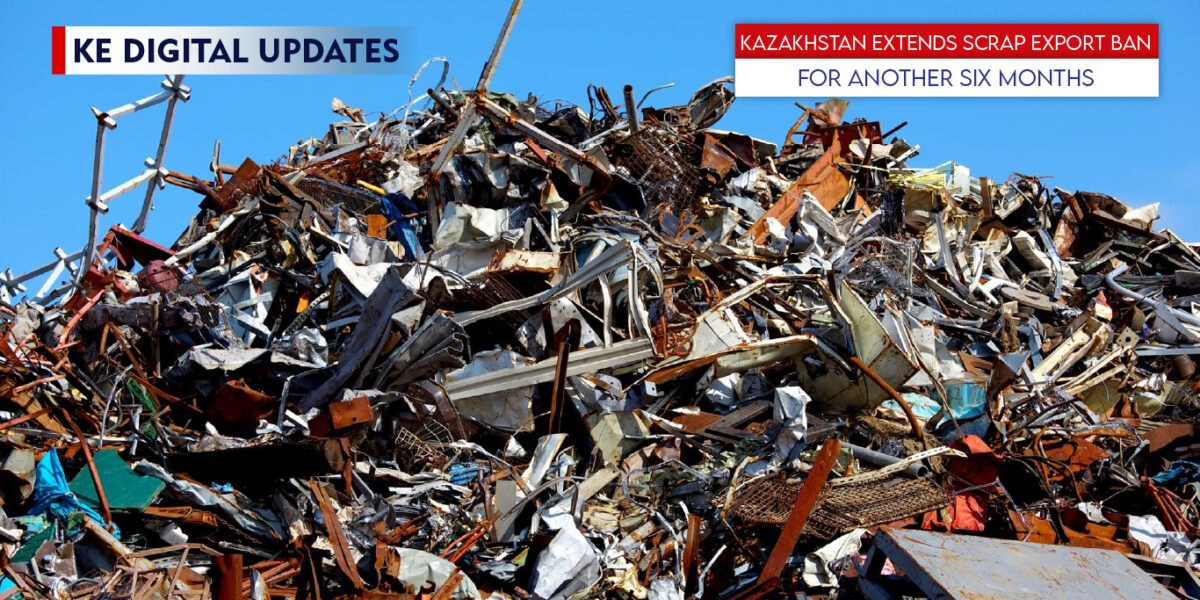Published on Oct 28, 2024
Kazakhstan has announced an extension of its ban on the export of ferrous and non-ferrous scrap and waste for another six months, starting from November 2. This decision formalized in an order by the Minister of Industry and Construction on October 21, aims to support the domestic steel industry by ensuring a steady supply of raw materials.
Scope of the Ban
The extended ban covers various materials, including ferrous scrap, used pipes, rails, and railway parts. However, there are specific exceptions for parts of railway rolling stock that are imported or exported for repair purposes. Companies involved in such transactions must submit the necessary documentation five days before crossing the border and provide certificates of completion within the prescribed timeframe.
In addition to ferrous materials, the ban applies to non-ferrous secondary raw materials such as copper, aluminum, and lead scrap. This comprehensive approach is intended to bolster the availability of these critical materials for domestic industries.
Historical Context and Current Impact
Kazakhstan first imposed a ban on scrap exports seven years ago. This policy has been consistently renewed to support the domestic steel industry, which relies heavily on these raw materials. Despite the ban, many raw materials continue to be shipped to Russia. This is because both countries are members of the Eurasian Customs Union (EAEU), where the export ban does not apply.
According to the Ministry of Industry and Construction, Kazakhstan collected approximately 1.9 million tons of ferrous scrap in 2023. However, the domestic market demand was significantly higher, at 3.9 million tons. This discrepancy has led to an average utilization rate of only 35% for enterprises consuming this raw material. The extended ban is expected to help address this gap by ensuring more scrap remains within the country.
Economic and Industrial Implications
The extension of the export ban is a strategic move to enhance the competitiveness of Kazakhstan’s steel industry. By retaining more raw materials domestically, the government aims to reduce reliance on imports and improve the operational capacity of local enterprises. This policy is also expected to encourage investment in the domestic recycling and processing industries, creating jobs and stimulating economic growth.
However, the ban also poses challenges. Companies that rely on exporting scrap for revenue may face financial difficulties. Additionally, the need to comply with documentation and certification requirements for exceptions could increase administrative burdens.
Conclusion Kazakhstan’s decision to extend the ban on scrap exports reflects its commitment to strengthening the domestic steel industry. The government aims to boost local production and reduce import dependency by ensuring a steady supply of raw materials. While the policy presents certain challenges, it also offers significant economic growth and industrial development opportunities. As the country navigates these dynamics, the extended ban will play a crucial role in shaping the future of Kazakhstan’s steel industry.


